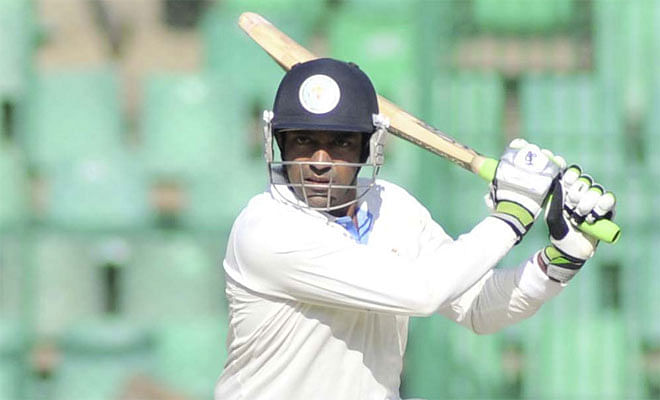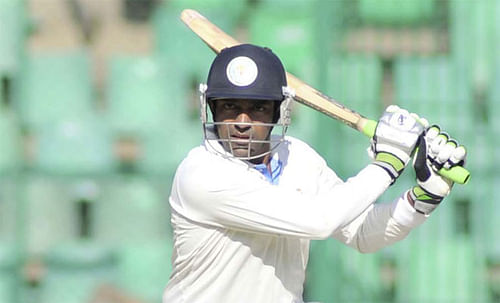
The love of cricket and the lesser seen battles in Ranji Trophy
So the other afternoon, utterly bored in this Bangalore apartment of mine, I chose to finally unpack the bags and start reading The Taliban Cricket Club by Timeri N. Murari. While the concept and story of the book is as good a novel as it could be, here is a few lines I thought was worth sharing with ya’ll knowledgable fellas.
“Cricket is a democracy of actions and reactions….the two warriors are pitted against each other and only one can win…..Think cricket as a theatre in which an action repeats itself over and over again until the character is defeated….. Cricket is theatre, it’s dance, it’s an opera. …It’s about individual conflict that takes place on a huge stage. But the two warriors also represent the ten other players…It’s a relationship between the one and many. The individual and the social, the leader and the follower, the individual and the universal.”
What to say about cricket? Alluring an affair as it is ever. It is love that consumes you, drives you crazy, makes you sane and suddenly you realise how it’s sitting right after oxygen and food in your life cycle. The manner in which it prevails as a team game as a sum of multiple individual showdowns. The one on ones are charming. The situation, the need, the aggression, the calculation, the dominance and the way it unfolds makes the culmination a supreme delicacy.
Well, in Harold Pinter’s words, “I tend to think that cricket is the greatest thing that God ever created on earth – certainly greater than sex, although sex isn’t too bad either.”
Be it Sachin vs Steyn or Uthappa vs Amit Mishra. Don’t laugh at me yet, I have point to prove that requires a comparison on the ridiculous side. The former was lauded as an epic battle, as we all are aware of, appreciated, acknowledged and admired by the bests. The latter didn’t have the build-up any close to the former and not many were aware of it either and yes, I confess, it didn’t have a lot to the sing it’s praise.
There were a few though, who were flattered by the flurry of strokes, bouncers and glares. The few in fact was quite considerable in number, because this is Ranji Trophy we are talking, the jaded, bruised domestic tournament of India, extremely non-glamorous, hidden behind the curtains of IPL etc, which rarely attracts crowd and there was even one time when the number of security guards outnumbered the crowd.
Back to the battle or combat or blitzkrieg. It was a quarterfinal game in the Chinnasamy stadium, Bangalore. Karnataka vs Uttar Pradesh.

Robin Uthappa
I didn’t know what to expect from Uthappa who was just back from a considerably long injury lay off. He greeted the paltry crowd with a fine leg boundary. Samarth, who opened the innings, performed very well in his debut against Mumbai was pushed down with Uthappa opening with the very talented KL Rahul.
The first blow of the day was delivered by Rajpoot who impressed the CSK in a talent hunt. Amit Mishra was quick enough to land killer blows with two wickets in as many balls in the next over. The batting team seemed crumbling and the momentum was very much with the UP team. Just as you thought they will run through the line-up, Uthappa thought it was about time to prove some people wrong.
He kept his cool and took the conflict to his heart. The scoreboard read 15-3. One to the point boundary, one to the fine leg fence, one to the unarmed deep mid wicket. He dominated the bowlers with his aggression in an unlikely situation. The contest in which he took the centre stage.
And there was a pattern. A short ball, a stare, a boo(paltry yet vocal crowd) and a lovely boundary. The conflict was still on. Next over, Mishra had the upper hand with a near edge, a streaky boundary and a short ball. A Sachinesque straight drive followed in the Rajpoot over and the scorecard read 59-3. Uthappa’s contribution was 47. He is known for his shotmaking. He played them all and grew in confidence with a late cut and a midwicket heave.
There was a clear winner now. As it goes, Robin Uthappa played to his strengths, unfazed by the situation forcing the dominance and thus winning a crucial individual conflict for the other ten. Cricket is fascinating no? (Oh the match had an interesting scorecard as well.)
If you did follow Ranji this year, surely there was a pattern in the results, unlike the recent past that would’ve caught your sight. Here are some thoughts on them:
January 23, 2012. Rajasthan was lauded for winning the premier domestic first class tournament in India for the second time in as many years. The final was so Ranji Trophy esque. It was decided on the basis of first innings lead and the finalists had four wins out of seventeen games till finals.
Karnataka, Saurashtra , Baroda and Madhya Pradesh had more wins than one of the teams in final in which Rajasthan managed to hold on to the trophy with just three wins throughout the league and knock out stages. Mumbai, which had three wins in the league stage, was kicked out by Tamil Nadu in the Semi Finals by guess what – a first innings lead. That was the state of Ranji trophy two years ago.
Fast forward to January 18, 2014. Bengal, Maharashtra, Punjab and Karnataka were gearing for the semi finals with eighteen outright wins to their distinction. There has been a massive turn around in accordance with the number of results. More than half of the matches had produced results.
To be accurate, 59 out of 112 matches had either of the team winning outright and score stands as 52.67% . To shed more light, the figure for 2011-12 season was 38.6%.
With BCCI getting involved in the media for all bad reasons (still not enough in my opinion) they deserve brownie points for this hefty turnaround. Credit where it’s due. Right after the 2011-12 Ranji Trophy, the technical committee headed by Sourav Ganguly advocated a heap of changes in the domestic structure such as overhauling Ranji trophy format, abolishing the Elite, plate systems, introducing finer points system to push teams to go for an outright win including some changes in the calendar.
After approving the recommendations BCCI had appointed Sanjay Jagdale to supervise and produce true pitches. For some reason Anil Kumble replaced Sourav Ganguly as the chair person of technical committee and he introduced four day gaps this season(2013-14) which wasn’t the case earlier.
Though the first year after massive overhaul didn’t show much improvement, the following year(current season) has improved strikingly if not drastically.
PS: Regarding the leaked position paper and proposed changes in cricket governance do what Jarrord Kimber said. You might get an idea about that here, here and here.